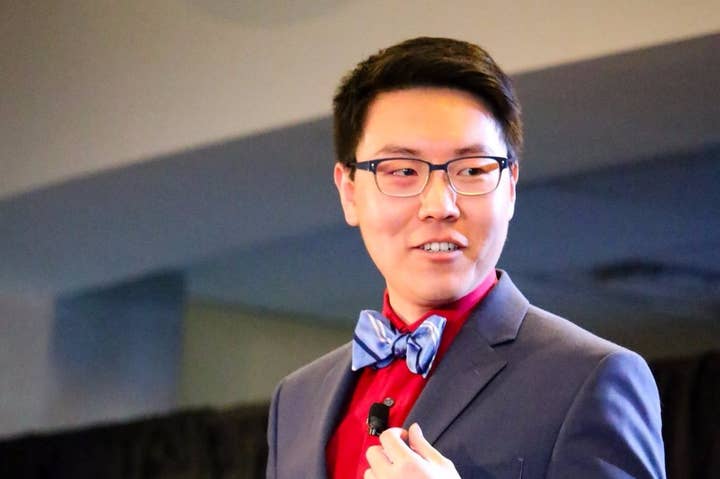Forging a new publishing model
Zhenghua Yang's aspirations for Serenity Forge are bigger than just turning a profit
In a GamesIndustry.biz interview published last week, 11 bit Studios' Pawel Feldman talked about the company's indie publishing plans, which will see it separate itself from the pack by pursuing meaningful games to publish. While there's certainly less competition in that area, 11 bit is far from the only game in town on that front. We also recently spoke with Zhenghua Yang, president and CEO Colorado-based Serenity Forge about his own company's efforts to build a business by helping creators bring "value-driven" games to market.
Like 11 bit, Serenity Forge is a development-studio-turned-publishing-partner, while still making its own games. Unlike 11 bit, Serenity Forge was created with meaningful games in mind, and already has a handful of projects under its belt as a publishing partner. Earlier this year, Serenity Forge published the PlayStation 4 version of the sci-fi story-driven exploration game Lifeless Planet and followed it up last week with the PC and PS4 editions of Four-Sided Fantasy, a puzzle game where players attempt to reunite a couple through clever manipulation of the screen's boundaries.
"As a developer, we've always been going around trying to work with publishers," Yang said. "And we've never really found anything that's exactly what we're looking for as a publisher. You get your larger publishers like EA, your Activision, your 2K, AAA publishers that have really turned this whole business into a profit-generating machine. Which makes sense. That's what you're supposed to do as a company. But it's not quite what we're looking for. Then you get the smaller indie publishers, like Devolver, Tiny Build, some of these smaller ones that have this, 'Hey, check out this sick game, dude' kind of feeling with their publishing. And that's not really what we're looking for, either."
He added, "Most publishers, even indie publishers, or you could say especially indie publishers, I feel like they have this mindset where the game has to be streamable on Twitch. It has to be Let's Playable. It has to be viral in some way. It has to have really cool looking screenshots. If it doesn't have those aspects, then it's not going to sell well and they're not going to be publishing it."
In Yang's estimation, there simply wasn't a place for games like Gone Home and The Stanley Parable to find a publishing partner. And while the developers of those specific titles ultimately didn't need a separate publisher to help them find their audience, Yang knew not all developers with those kinds of creative ambitions were as fortunate. As a result, Serenity Forge added the publishing business to fill a clear need in the industry.
"I don't think most game developers are under the right mindset when they're creating their video games, not just their first but after many games."
Yang knows these aren't the most commercial games to pursue, but it's clear he doesn't treat Serenity Forge as a profit-at-all-costs kind of operation. He said he borrowed the mindset of Whole Foods co-founder John Mackey, who likened his approach to running a business to being a person. A business needs to make money to survive, and as a person needs food to eat. But just as a person's goal shouldn't be to only eat food, a business' only goal should not be to make money, in his estimation. Obviously, that perspective is not universally shared among publishers, and Yang suggests it's not as common as he'd like it to be among developers, either.
"It's weird to say this, but there aren't enough quality developers out there," Yang said. "I don't think most game developers are under the right mindset when they're creating their video games, not just their first but after many games. You still see game developers making the game mistakes with the same kind of incorrect motive for making games. "
Yang said most developers' motives generally fall into one of two categories. Either they want to make a supercool game they want to play themselves, or they want to make the next big thing and make the most amount of money.
"I think these two goals are both intangible goals, and not necessarily what people should chase after," Yang said. "But everyone is."
He would prefer to see more developers with a concrete plan on who they're targeting, and what they hope to achieve with their games.
"What do you want your game to do? Do you want your game to teach people something? Do you want your game to change the landscape of how people think? Do you want your game to make people realize they have a passion for something they never realized before? These are all things that I think really will fundamentally change the gamer's perspective," Yang said. "And if you don't think about what your game is out there to do in our society, then I don't believe you truly understand the industry."
Serenity Forge's next game as a publishing partner will be Mystic Melee for PC and Mac, expected to launch by the end of the year. It's also continuing to develop its own games, such as The King's Bird, which will arrive in 2017.


